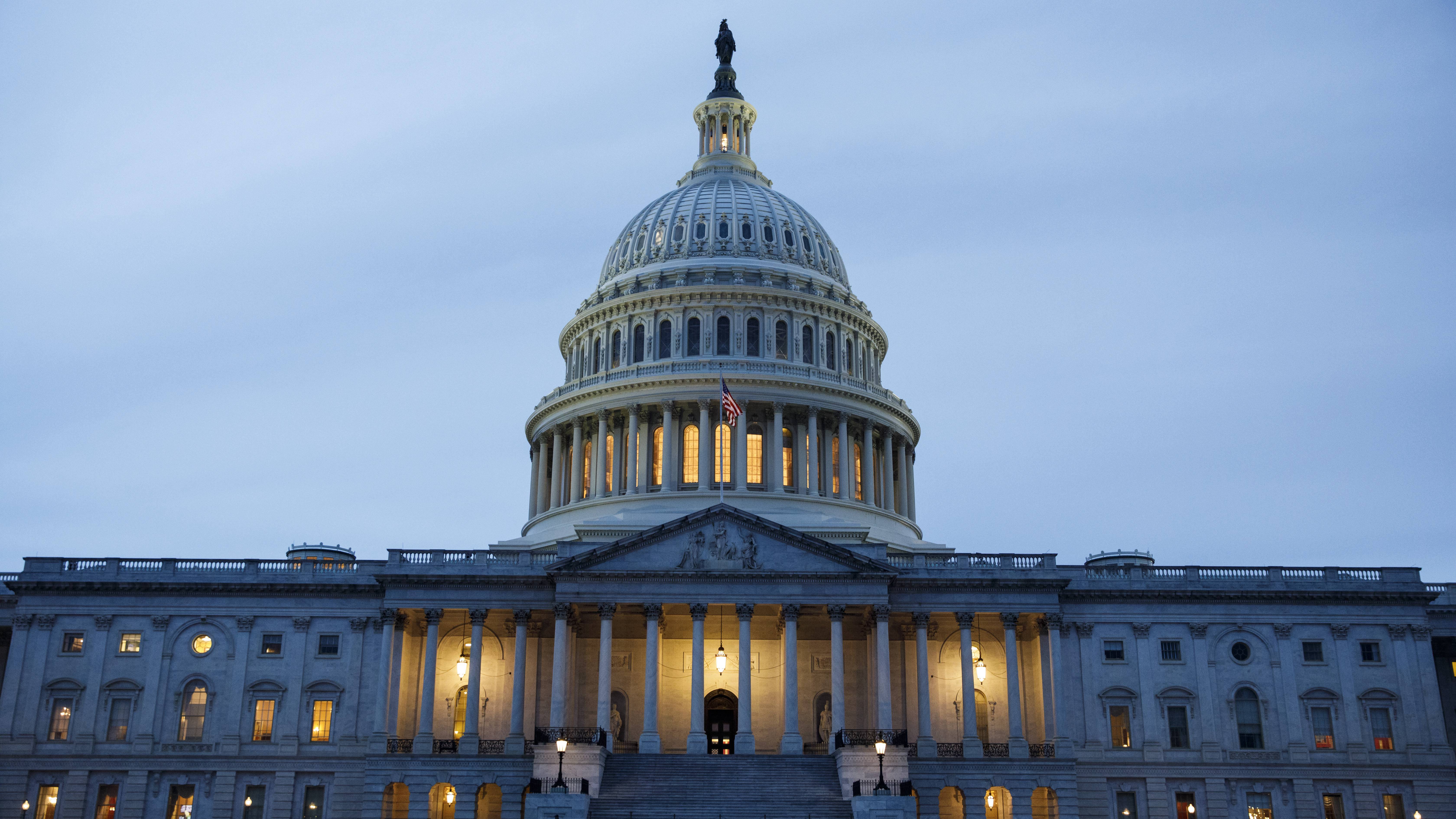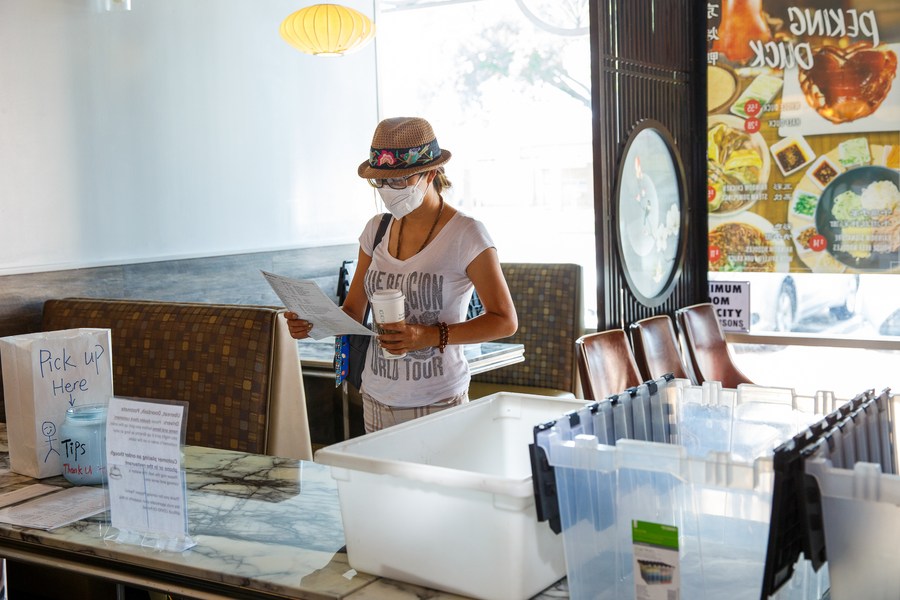
The U.S. Capitol Building in Washington DC, U.S, March 12, 2020. /Xinhua
The U.S. Capitol Building in Washington DC, U.S, March 12, 2020. /Xinhua
Editor's note: Azhar Azam works in a private organization as a market & business analyst and writes about geopolitical issues and regional conflicts. The article reflects the author's opinions, and not necessarily the views of CGTN.
As the fiery 2020 U.S. presidential election campaign draws near, Donald Trump is turning up the heat on China to boost his prospects and grab a second win by fueling intensifying his dodgy and debauched economic, diplomatic, political and technological bias against China.
A small group of half-witted lawyers – specifically the U.S. Secretary of State Mike Pompeo, Attorney General William Barr, FBI Director Christopher Wray and National Security Adviser Robert O'Brien – are at the forefront of Trump's anti-China drive.
But Trump's gimmicks – such as heaping blame on China for the coronavirus pandemic, capping the number of Chinese journalists to 100, sanctioning Chinese tech companies and individuals, closing the Chinese consulate in Houston and blocking Chinese students and workers, among others – are met with widespread criticism in the U.S.
In a blazing article for CNN, Stephen Roach classified all Trump's top aides as a "Gang of Four," who have been systematically focused on posing China an ideological threat, accusing it for espionage and knocking Beijing's policies while the U.S. was undergoing a delicate economic situation. He also busted Pompeo's conspiracy theories and his "racist depiction" of calling coronavirus as the "Wuhan" or "Chinese virus."
Roach, former chief economist at Morgan Stanley Asia, punched a hole in the Trump-led Gang's vile ambitions by stating its arguments, including the COVID-19 origin blame game, as a whole were unfounded and "laced with conspiracy theories and devoid of fact-based analytics." He further said that none of these officials had the necessary background to speak from the perspective of foreign trade that plays a key role in shaping the U.S. economy.
Roach is one of the many voices in the U.S. who preserve similar thoughts about a "gangster" administration that is detonating international trade, trying to rob international tech firms like Nokia and Ericsson to fight Huawei and now making efforts to predate TikTok while global economic system is decimated by the COVID-19, with a sole purpose to lift Trump's declining approval rating.
With hardly any substantial achievement on his back to boast about and many Americans say they don't trust Trump on anything he has said about the infectious disease, he is envisaging a potential defeat in the upcoming election. The fear of losing is making him more hostile, not only toward China, but all nations across the world.
The president's corrosive attitude has pushed the U.S. leadership's global acceptance to a historical low and made the administration unpopular worldwide. According to Gallup, universal image of the Trump administration remained at floors, especially in Europe where its disapproval scooped from 37 percent in 2016 to 61 percent in 2019.

A customer wearing a face mask looks at a takeout menu at a Chinese restaurant in Houston, Texas, U.S., July 2, 2020. /Xinhua
A customer wearing a face mask looks at a takeout menu at a Chinese restaurant in Houston, Texas, U.S., July 2, 2020. /Xinhua
As the U.S. is still overwhelmed with a glut of COVID-19 patients, deaths, job losses and a looming economic collapse – by virtue of Trump's inept policies and hopeless health response – the desperation from consistent failures are showing his true colors.
The economy, the bedrock of his politicking, has now contracted by a staggering 32.9 percent in the second quarter and well on track for eight percent yearly slump, is overshadowed by his belligerence. China, which was the first to successfully control the outbreak and the only major economy to post a plausible growth of 3.2 percent in Q2-2020, is his prime target to camouflage his enormous blunders.
As a matter of fact, Beijing's resilience to synchronously wrestle with the disease and prevent an economic calamity makes it an ideal and natural pick for the U.S. to come out of the crippling health and economic crisis.
Independent asset managers, economic analysts and think tanks said China's pandemic response was "far more focused, forceful and effective than elsewhere." The COVID-19 pandemic has demonstrated the effectiveness of Chinese governance system, centralized economic decision making, government's commitment to deepening reforms and creating a market-based, internationalized business environment.
China, however, has over and over again affirmed that it is not interested in dominating the global economy or unseating the U.S. as a global leader. The Chinese government has always propounded the idea of forging a joint response against COVID-19 and engaging in extensive consultations to promote multilateral cooperation and derive shared benefits.
Pointing out the coronavirus-linked risks to the emerging markets, which are responsible for roughly two-thirds of the global growth in the past 10 years, experts urged China and the U.S. to "step up to the plate" and deploy more resources to developing economies to help them fight the virus and to prevent the real threat of "submerging world."
By extending medical support, writing off some loans, providing debt relief and efforts to increase trade, Beijing firmly stands by its commitment to help all the nations.
And importantly, China never attached any economic and political strings with its aid, as falsely disseminated by the Western media and some American officials. It believes that only by promoting trade, building consensus and working together can we resolve the dire challenges ahead.
Should the White House break its self-demarcated anti-China shell and stretch out its hands of cooperation to settle bilateral gripes through dialogue, Beijing would be more than keen to embrace Washington and work with it to defeat the virus and revive each other's as well as global economy.
It is for the U.S. to decide whether it would continue its antipathy toward China, which has proved detrimental to America and the world, or pack up the bitterness and get back to talks with China to achieve win-win results.
(If you want to contribute and have specific expertise, please contact us at opinions@cgtn.com.)